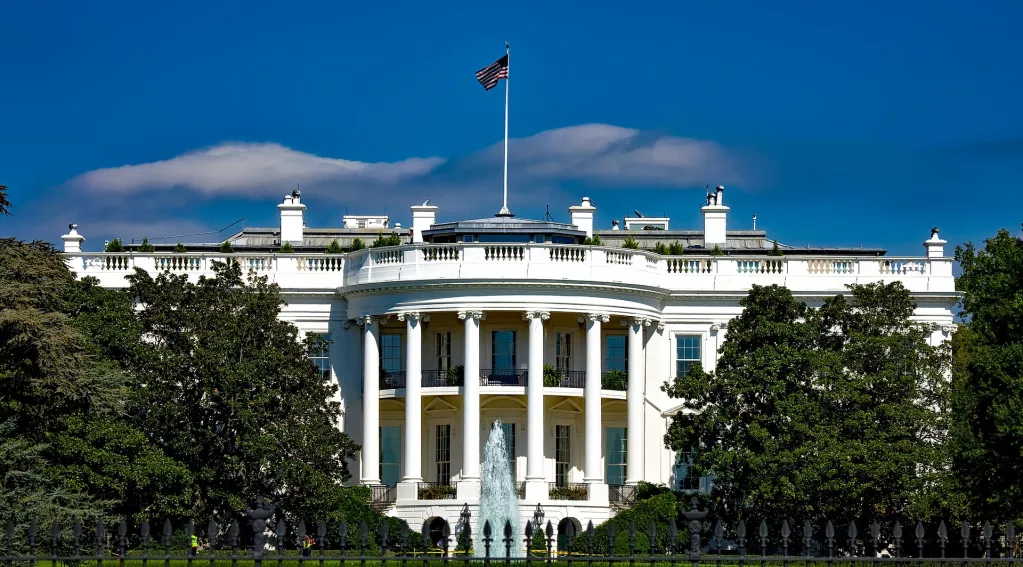Trump Fulfills Campaign Promise to End DACA

Legislative Update By: Robert Law
On September 5, Attorney General Jeff Sessions announced the Trump administration’s plans to phase out the Deferred Action for Childhood Arrivals (DACA) amnesty program, unlawfully created by President Obama in 2012. (FAIR Press Release, Sept. 5. 2017) Rather than abruptly ending the program immediately, President Trump established a phase out the unconstitutional work permit program over the next two years. (White House Statement, Sept. 5, 2017)
During a press conference announcing the winding down of DACA, Attorney General Sessions explained how the program was legally indefensible. (Department of Justice Statement, Sept. 5, 2017) “If we were to keep the Obama Administration’s executive amnesty policy, the likeliest outcome is that it would be enjoined just as was DAPA. The Department of Justice has advised the President and the Department of Homeland Security that DHS should begin an orderly, lawful wind down, including the cancellation of the memo that authorized this program,” Sessions stated. (Id.)
The administration’s phase out has different timelines depending on the current status of individuals in the DACA process. (Memorandum on Recession of DACA, Sept. 5, 2017) First, DHS stopped accepting any new DACA applications at close of business September 5 for from applicants who are not already in the program. (Id.) Second, the administration plans to adjudicate all pending applications and award DACA and work authorization for the standard two-year term for eligible applicants. (Id.) Currently, there are approximately 33,000 applications pending for initial DACA approval and 73,000 applications pending approval for renewal. (Department of Homeland Security FAQ, Sept. 5, 2017) Third, the administration will adjudicate renewal applications for current DACA recipients whose DACA status is set to expire within the next six months (between September 5, 2017 and March 5, 2018), so long as they apply for their renewal by October 5, 2017. (Memorandum on Recession of DACA, Sept. 5, 2017) DHS will not accept any applications for renewals after October 5. (Id.) In effect, DACA recipients will begin to lose their “protected” status beginning March 6, 2018—approximately six months from now. Those who lose their DACA status will return to being considered unlawfully present in the country. Importantly, the administration reiterated that illegal aliens losing DACA status are not an enforcement priority and reports of mass deportations are blatantly false. (White House Statement, Sept. 5, 2017)
Finally, the administration announced that it intends to terminate the Obama administration’s expansion of advance parole for DACA recipients. (Memorandum on Recession of DACA, Sept. 5, 2017) Advance parole is an administratively created tool, with no statutory backing, that allows an illegal alien to leave the U.S. with a promise of being “paroled” back into the U.S. upon return. (FAIR Legislative Update, July 26, 2016) Advance parole has been exploited by the Obama administration to put DACA recipients on a path to citizenship. (Id.) While the Trump administration does not intend to approve any additional advance parole applications, it will honor prior approvals. (Memorandum on Recession of DACA, Sept. 5, 2017)
The DACA program currently has approximately 690,000 illegal alien beneficiaries. (Department of Homeland Security FAQ, Sept. 5, 2017) While DACA recipients were minors when they entered the United States, the overwhelming majority of DACA recipients are in their 20s and 30s. (Id.) DACA recipient’s ages range from 15-36, and the average DACA recipient is 23 years old. (Id.)
Attorney General Jeff Sessions emphasized that DACA is responsible for the surge of illegal alien minors, mainly from Central America, during Obama’s second term. (Department of Justice, Sept. 5, 2017) “The effect of this unilateral executive amnesty, among other things, contributed to a surge of unaccompanied minors on the southern border that yielded terrible humanitarian consequences. It also denied jobs to hundreds of thousands of Americans by allowing those same jobs to go to illegal aliens,” he stated. (Id.)
Depending on how long DHS takes to process the applications received by October 5, the entire program should completely end by late 2019. (Department of Homeland Security FAQ, Sept. 5, 2017)
